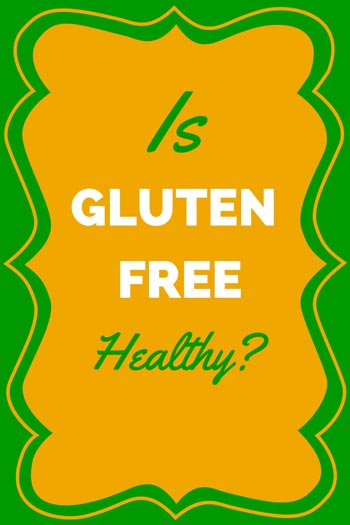Many Believe a Gluten Free Diet is Healthy for All, Research Says
May 29, 2014 by Amy Leger | G+ Amy Leger Being gluten free is a very healthy lifestyle for my daughter. Emma has celiac disease. Without the gluten free diet– she wouldn’t be healthy at all. That is because gluten causes an autoimmune response in her gut. Her body attacks itself. In the short term, causing major GI distress. In the long term, the autoimmune response causes the villi in her small intestine to flatten and not grab nutrients from her food — leading to malabsorption and other major health issues.
Being gluten free is a very healthy lifestyle for my daughter. Emma has celiac disease. Without the gluten free diet– she wouldn’t be healthy at all. That is because gluten causes an autoimmune response in her gut. Her body attacks itself. In the short term, causing major GI distress. In the long term, the autoimmune response causes the villi in her small intestine to flatten and not grab nutrients from her food — leading to malabsorption and other major health issues.
The gluten-free diet CAN be a healthy lifestyle. Certainly the diet is not dangerous for people who don’t have a medical necessity for it. Although experts say if you don’t need to be gluten-free for medical reasons, don’t do it. “For most other people, a gluten-free diet won’t provide a benefit”, dietitian Katherine Tallmadge told the Scientific American last year.
But that is not what many Americans think. A new trend report from The NPD Group looks specifically at the perceptions shoppers have about gluten-free living. Many believe it is a healthy way to go. But is the gluten free diet as healthy as some people think? I’ll get to that later.
The NPD Group research found while 11 percent of “households follow a gluten free diet”, actually a larger number — 1 in four people or 25%– believe that “gluten free is good for everyone”. But the report also says “The general healthfulness of gluten-free foods is offset, consumers say, by the cost and taste of these foods.”
Of the aforementioned 11% of households that follow a gluten free diet, 25% of them report being gluten free because of celiac disease or a gluten sensitivity. That equates to about 2.75% of the households in this survey. Other respondents cite other reasons like reducing toxicity and improvement of digestive health for being gluten free.
It appears a majority of respondents in this study don’t have to be gluten free when they have this response to some of the researchers questions, “Half of gluten-free consumers say that they may not be willing to sacrifice taste in order to maintain a gluten-free diet; however, the most-cited reason for choosing to not purchase a gluten-free product is that it was too expensive,” the report says.
I know a lot of people with celiac and gluten sensitivity who would roll their eyes, scoff, or get frustrated with that last paragraph. We have all gotten used to the expense and taste– or we have learned how to work around the expense and improve the taste, by making our own food, eating in-season, and skipping the processed foods. Probably not what the NPD Group wants to hear.
Nutritional pitfalls of gluten free diet & how to fix them
Similar to a traditional American diet, the gluten-free diet can be as healthy or as unhealthy as you want it to be. Just like when “low fat” was the craze in the 90’s, you weren’t going to lose weight eating an entire box of Snackwell’s cookies. Fast forward to 2014 — you aren’t going to suddenly be healthier by eating a bunch of gluten-free cookies, chips or cereal.
Whether gluten free or not, many processed foods are not as packed with nutrition as you might think. Processed, quick meals are good to have available when you need them, but moderation is key here.
If you do go gluten free, you should keep in mind some nutritional issues, which could be unhealthy for you if not addressed.
Dr. Alessio Fasano’s book Gluten Freedom says people on a gluten free diet should work with a dietitian to have iron, and vitamins D and B levels checked. Regular breads and cereals are enriched with B vitamins, for example. If you give these products up, and don’t seek out another food from which to get Vitamin B, you could become deficient. Dr. Fasano also recommends a multi-vitamin, including calcium (gluten free of course).
While there is a time and place for purchasing gluten-free “Oreos”, for example, eating whole, one-ingredient foods like meat, produce, eggs, and dairy will be the healthiest options for you if you are going gluten free.
Disclaimer: I am not a medical professional. If you want to go gluten free please consult your doctor and get the celiac blood test first to rule in/rule out celiac disease.
Tags: celiac, free, gluten, gluten-free, products, sensitivity, shopping



Leave a Reply